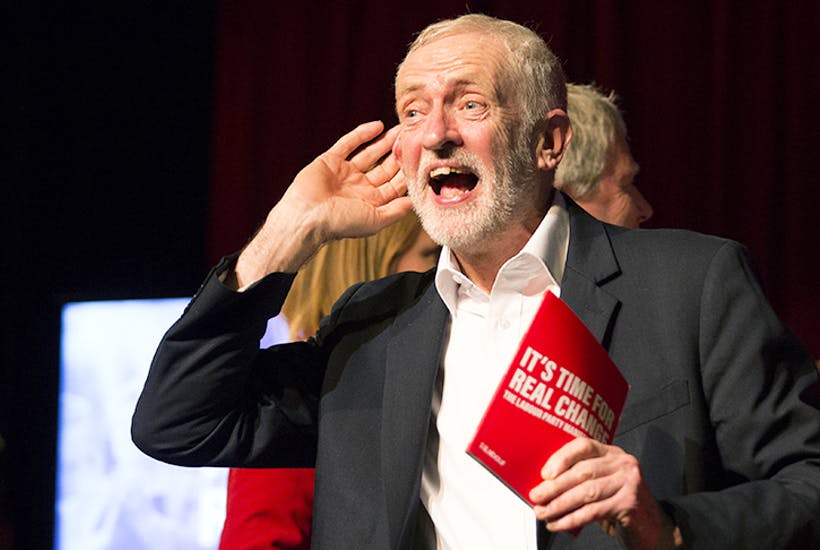Until recently, the Tories seemed pretty confident about next week’s election. Despite spending three and a half years blundering over Brexit, they were still comfortably ahead of Labour in the polls. In Jeremy Corbyn, they had an opposition leader denounced as a terrorist sympathiser, an unreconstructed communist, a rabid anti-Semite and — in general — an enemy of Britain. You might regard Corbyn this way yourself. If so, then it’s worth asking: if he really is so bad, why has support for Labour been steadily increasing since the election was called? Is the nation going mad — or might there be more to it?
I’ve supported and campaigned for Corbyn’s type of politics most of my adult life. Perhaps I’m far too embedded in the choir to be able to spot whether he is as off-tune as the headlines say — but if he ends up in No. 10 it would make perfect sense to me. Here’s why.
The ‘tear it all down’ instinct that underpinned the Brexit vote means ‘status quo’ arguments don’t work
As our society gets ever more segmented and social-media algorithms keep us in political safe spaces, our ability to see what’s going on outside of our particular circles gets weaker. This election, more than any I can remember, is just too complicated to be easily predicted. Will Remain Tories decide that their concerns about Brexit trump their fear of Corbyn? Will Lib Dem supporters realise that pursuing their dream of Jo Swinson in No. 10 simply increases the chance of keeping Boris Johnson there? And what about those millions of late-registering young voters?
When I’ve been out canvassing this election I’ve spoken to hundreds of voters and have found the public mood nowhere near as anti-Corbyn as the newspapers claim. Often, they have been hit hard by a decade of austerity and rely on ever-shrinking community resources. Labour’s offerings — free broadband, tuition fees and prescriptions — might seem like fanciful gimmicks to those who are richer. But those most in need see a helping hand that will lighten their burden.
They view Corbyn’s pledges as transformative and they are sufficiently cynical of the press not to be persuaded otherwise. They see the Labour leader as an honest and principled man who would lead the country in a better direction. Another reasonable proportion of voters actively don’t like him (although they often don’t know why), but when challenged they say that the prospect of five years of Johnson-inspired havoc is enough to make even Corbyn palatable. Some I speak to lean towards the Lib Dems, but I find they reluctantly accept the binary choice that Westminster’s first-past-the-post political system offers. Quite a few say they’ll do whatever it takes to stop Johnson and his Farage-flavoured Brexit.
Tory boasts are falling flat. Saying that more people are employed than ever, or that bucketloads of cash are being poured into services, is basically telling people that they have never had it so good. Voters can contrast these claims with their own lives: often stagnant wages and uninspiring jobs. The Tory strategy for this election seems set on conjuring fear of Corbyn; but when you have little to lose, there’s little to fear. The ‘tear it all down’ instinct that underpinned the Brexit vote is still with us and makes it harder for ‘status quo’ arguments to flourish.
Support for Corbyn doesn’t just come from those in extreme need, but all those who work with them: teachers, social workers, medical staff. And from richer voters who are willing to pay more taxes. I’m campaigning in London, where a winter election means voters see people asleep in doorways, and know some will die of the cold.
The need for change is obvious and, this winter, is all around us. The Tories once promised stability, but the past few years have been a disgraceful shambles. Don’t be surprised if, next week, voters decide it really is time for a change.
Maurice Mcleod is a Labour councillor.






Comments